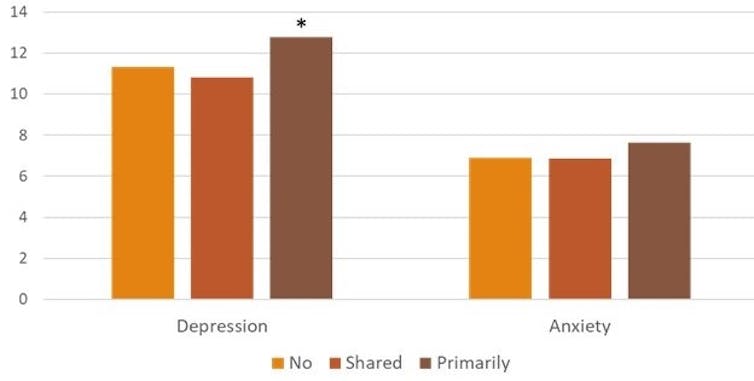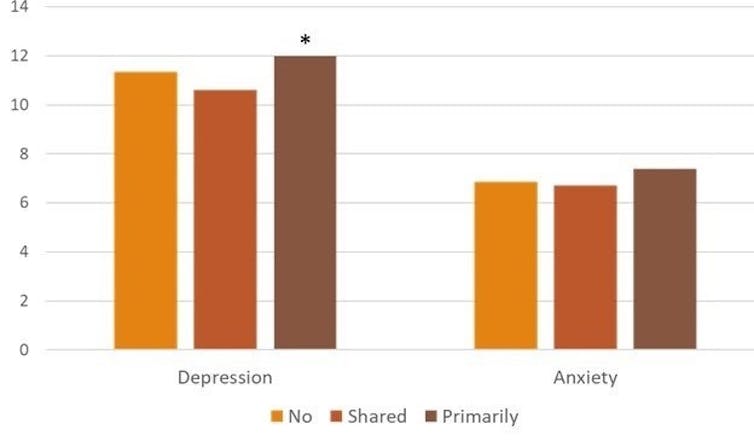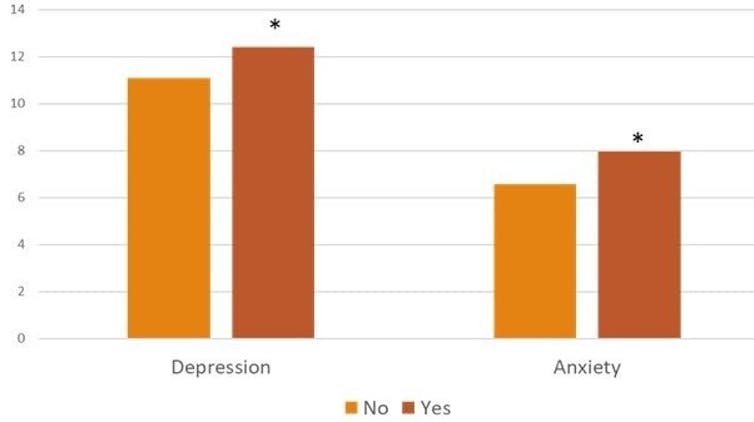
Concerns about the effects of school closures and COVID-19 disruptions over the past two years are still very much a concern for educators — including well-placed worries about how school closures have affected young learners.
It is important to recognize that school closures have also significantly impacted educators and parents — critical figures and caregivers for children. Our research has examined how educators who are also parents have fared with teaching from home with their children underfoot.
Among the most affected educators have been the teams of kindergarten teachers and early childhood educators responsible for implementing Ontario’s full-day learning curriculum.
Kindergarten in Ontario focuses on hands-on, play-based and interactive learning — activities that are nearly impossible to re-create in an online environment.
Survey of kindergarten educators
Our team at the Offord Centre for Child Studies at McMaster University surveyed kindergarten teachers and early childhood educators representing almost all of Ontario’s school boards in the spring of 2020, when schools first shut down.
Ontario’s kindergarten model is a team approach with both professionals in classrooms. Study participants included 1,790 educators in Ontario — about three-quarters were kindergarten teachers and about one-quarter were early childhood educators.
We wanted to know if educators who had to balance teaching from home with caregiving responsibilities for family members reported poorer mental health than their colleagues who did not. The survey data we gleaned strongly suggested they did.

Our findings show that those who were primarily responsible for the care or learning of their own children self-reported poorer mental health than those who did not have these responsibilities or those who could share them.

Caregiving for older adults also
Previous research from Ireland involving more than 600 adults suggests an association between taking care of children in the pandemic and positive emotion, although the same study found an association between schooling children at home and negative emotion. Our study suggests caring for children in the pandemic may have only been positive for parents if the responsibilities are shared. Those who could share their responsibilities for childcare or learning fared better in terms of depression and anxiety than those who did not have any such responsibilities.
Our findings also indicated that educators who, during the early stages of the pandemic, reported being responsible for the care of an older adult also had higher depression and anxiety levels compared to those who did not have this responsibility.

Women’s pandemic realities
These findings are not only important when thinking about educators and how they can be best positioned to respond to young student needs, but also about working professionals in general.
Given that most kindergarten educators are women, these findings further support the idea that the COVID-19 pandemic has been having a larger impact on working women with children than on men.
These findings stress the importance of providing adequate mental health supports for teachers and early childhood educators to ensure they can in turn provide optimal support to our youngest learners.
Read more: New cross-Canada research highlights an early childhood educator recruitment crisis
Sum of our roles
Our results also highlight the need to think about the sum of our individual roles and responsibilities to better understand the full impact of the pandemic. Each of us has more than one role in life, and all of them have been impacted in one way or another.
Emerging from the pandemic, when employers consider supports required for employees, they need to look at things from a big-picture level.
Bearing in mind how employees have experienced home life and professional life both need to be held into account to help our society to continue to find possible solutions that will better support families in our society.
Magdalena Janus is partly supported by the Government of Ontario/Children's Secretariat Chair in Early Childhood Development
Natalie Spadafora does not work for, consult, own shares in or receive funding from any company or organisation that would benefit from this article, and has disclosed no relevant affiliations beyond their academic appointment.
This article was originally published on The Conversation. Read the original article.







